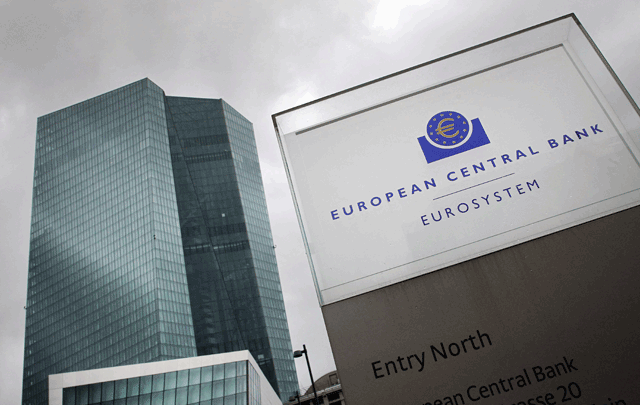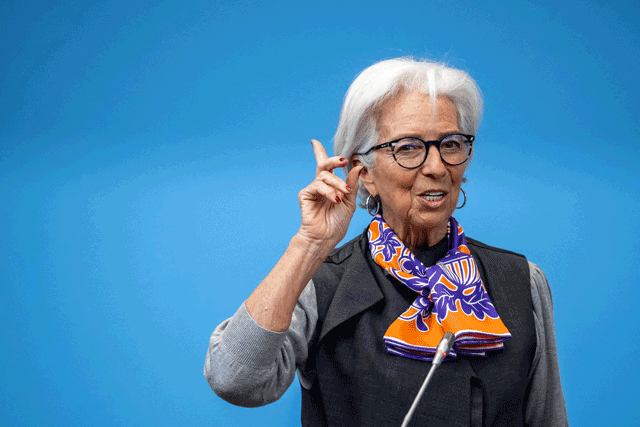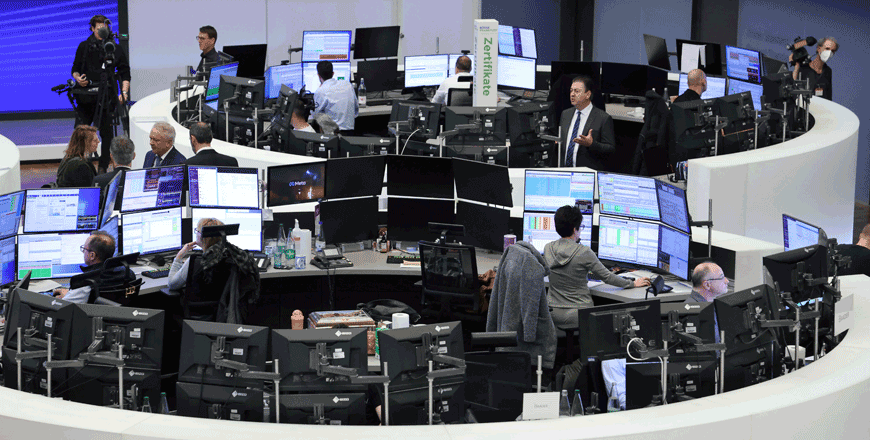You are here
World's central banks walk interest rate tightrope
By AFP - Mar 18,2023 - Last updated at Mar 18,2023

In this file photo taken on March 13, 2023, signage is displayed outside of a First Republic Bank branch in Manhattan Beach, California (AFP photo)
PARIS — The world's central banks are juggling whether to raise interest rates further in order to reduce inflation, and with the banking sector in turmoil, the stakes are especially high.
Why the focus on interest rates?
Central bank interest rates long ran close to zero, but they have now been climbing for months in a bid to rein in rising prices.
Silicon Valley Bank in the United States, which collapsed last week, did not adapt quickly enough.
It booked a $1.8 billion loss on bonds whose prices were brought down by the higher rates.
A second US lender, Signature Bank, imploded over the weekend while a third, First Republic Bank, was rescued by a coalition of its peers through $30 billion in deposits.
Concern has spread to other banks considered fragile — Switzerland's central bank intervened to protect Credit Suisse with a $54 billion loan, though its shares tumbled more than 11 per cent on Friday.
Central banks must now decide if they can risk worsening the crisis by taking a hard line on inflation.
What has the ECB done?
Despite the turbulence over the past week, the European Central Bank (ECB) on Thursday stuck to a planned half-a-percentage point interest rate increase.
The move reflected its "determination to curb persistent inflationary pressures", said Eiko Sievert of ratings agency Scope.
But he said the pace of rate increases should "slow significantly this year".
President of the ECB Christine Lagarde performed a balancing act on Thursday.
In the face of calls to slow rate hikes amid the banking turmoil, she insisted there was "no trade-off" between price and financial stability.
Lagarde said the central bank for the 20 countries using the euro was ready to intervene "as necessary" to protect the financial system.
"No one else is better positioned to judge the actual state of eurozone banks and financial markets than the ECB," said analyst Lorenzo Codogno.
It "would have sent the wrong signal" if the central bank had changed tack at the last minute, Codogno said.
The decision keeps two options open, according to Frederik Ducrozet, an economist at Pictet Wealth Management.
"If the panic eases, the ECB is likely to resume tightening before long," he said.
But if the banking sector crisis persists, "the ECB would not hesitate to intervene, quickly and boldly, if financial stability were to be threatened," he said.
What are the Fed's options?
In the United States, the Federal Reserve (Fed) said on Thursday it had lent US banks close to $12 billion under a new one-year lending program as authorities moved to ease stress on the financial system.
It said it was making additional funding available "to help assure banks have the ability to meet the needs of all their depositors".
All eyes will be on the Fed at its monetary policy meeting next week, with investors debating whether the US central bank will continue with its rate increases.
Markets are expecting a 0.25 percentage point hike, and some analysts even see the possibility of an end to the upward cycle.
"The Federal Reserve is focused on inflation and will look to hike 25bp if conditions allow," ING analysts said. Twenty-five basis points is a quarter percentage point.
The United States has eased regulations for its smaller lenders in recent years, where "European banks learnt their lessons from the Euro sovereign debt crisis" and strengthened "banking supervision and resolution framework", Allianz Trade said.
Like the ECB, "the Fed can have its cake and eat it too", said Stephen Innes of SPI Asset Management.
"Operators should be confident" Fed Chair Jerome Powell and his team have "the tools necessary for delivering both without needing to trade one objective off against the other", Innes said.
Business as usual elsewhere?
London's Bank of England (BoE) is expected to leave rates unchanged next week, as it had indicated it might do at its last meeting.
But the BoE has made a habit of springing surprises on investors and a rate rise cannot be ruled out.
The UK economy has held up better than expected and finance minister Jeremy Hunt said on Wednesday that the UK could technically avoid recession.
The Swiss National Bank should also "push ahead with rate hikes despite the Credit Suisse crisis", said Adrian Prettejohn of Capital Economics.
Related Articles
FRANKFURT — The European Central Bank (ECB) stuck to a planned interest rate increase Thursday as it remained laser-focused on battling sky-
GENEVA — European Central Bank (ECB) President Christine Lagarde said on Wednesday she will do whatever it takes to bring down high inflatio
LONDON — Global bank shares took another beating on Monday despite a UBS takeover of embattled Swiss rival Credit Suisse and actions by fina














